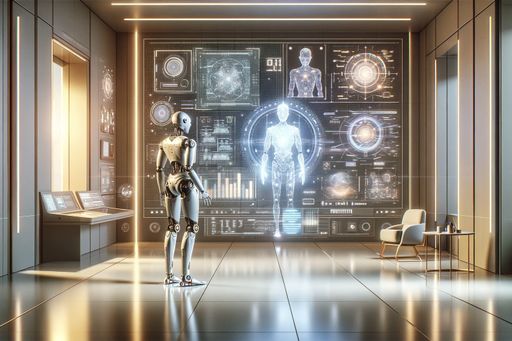AI Laser Camera Revolutionizes Heartbeat Monitoring
Scientists have developed a laser camera that can read a person’s heartbeat from a distance, promising to transform healthcare monitoring.

Innovative Technology for Heartbeat Monitoring
Scientists from Glasgow University have developed a laser camera that uses AI and quantum technologies to read a person's heartbeat from a distance. This new invention has the potential to revolutionize the way we monitor our health.
The technology could be set up in shopping mall booths or installed in a person's home to provide quick and accurate readings that can be added to their online medical records. It could also be used to monitor other health parameters, such as blood pressure abnormalities or early signs of diseases like Alzheimer's.
Monitoring a person's heartbeat from a distance is particularly valuable because it can detect irregularities that may indicate a stroke or cardiac arrest. This innovative technology has the potential to save lives and improve healthcare outcomes.
Replacing Traditional Stethoscopes
Currently, doctors use stethoscopes to monitor heartbeats. However, this traditional method has limitations and requires proper training to use effectively.
The laser camera system developed by the Glasgow University researchers eliminates the need for physical contact with the patient. It uses high-speed cameras to record images of a person's throat and measures the movement of their main artery as blood flows through it. Advanced computing systems with AI technology filter out background noises, allowing for accurate detection of the heartbeat signals.
By comparing a person's heart rate against their specific cardiac behavior, healthcare professionals can identify changes and pinpoint specific defects. This personalized approach enhances monitoring and diagnosis, leading to more effective treatment.
Future Implications and Benefits
The accuracy of the laser camera system is remarkable, even allowing for biometric identification. Its prime use, however, will be in easily and quickly measuring heartbeats outside of hospitals or GP surgeries.
The benefits of this technology are significant. It provides a non-invasive and convenient way to monitor heart health, allowing for early detection of issues and preventing potential life-threatening events. The system has the potential to save time, reduce healthcare costs, and improve overall patient outcomes.
The Glasgow University team has established a start-up company called LightHearted AI to further develop and commercialize their devices. They are currently seeking venture capital to expand their research and bring this transformative technology to the market.



